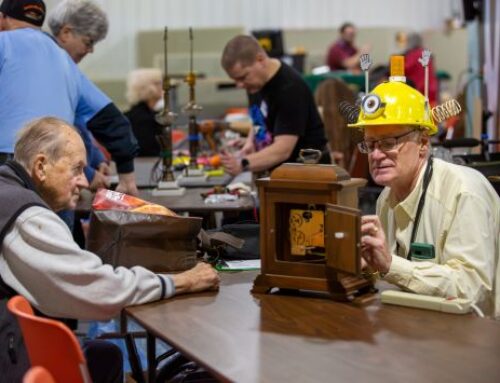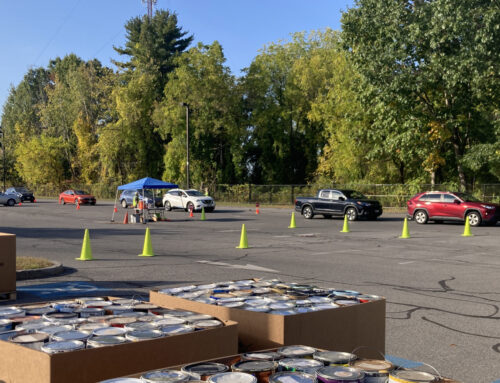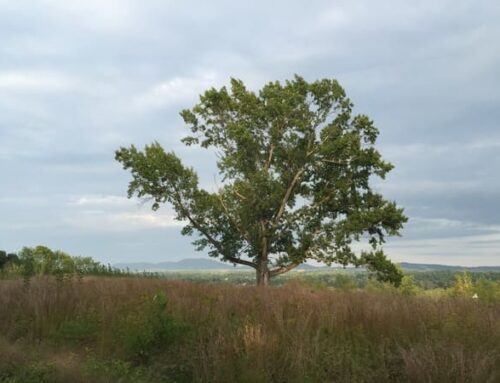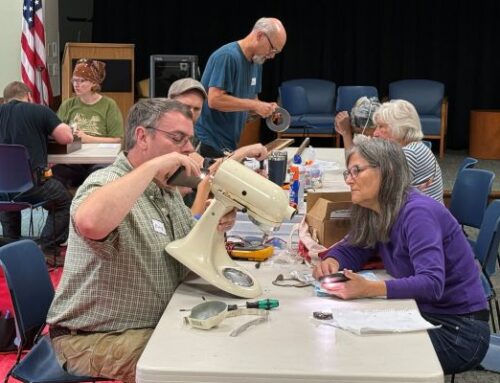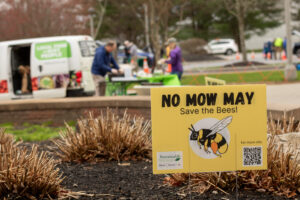
No Mow May is a movement that encourages people to provide food for insect pollinators by refraining from mowing their lawns in the early part of the growing season. Spring is a critical time for insects emerging from hibernation – they wake up hungry and need to eat fairly quickly if they are going to survive. Traditional sterile suburban landscapes do not provide much for them to eat and early mowing can make food resources even scarcer. By delaying mowing until June 1, or by slowing mowing down and mowing higher at any part of the spring or summer, bees and other insects can find nectar sources in lawns, like violets and dandelions, that would otherwise be cut down before flowering.
Insects are in trouble worldwide, with populations plummeting because of development, use of highly toxic, persistent insecticides, especially neonics, and climate change. While No Mow May is not a panacea, it is a useful consciousness-raising tool to make people understand that their yards can be part of the solution to habitat loss. Simply by getting accustomed to seeing lawns that have flowers in them, that are a little shaggy and that do not look like a putting green, people can start to understand the value of changing our landscaping habits in order to preserve our native pollinators and other species.
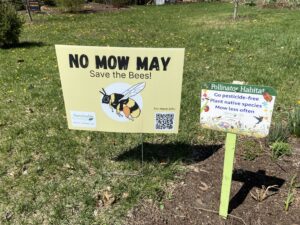 Of course, if your lawn is a monoculture maintained by chemicals, you shouldn’t participate in No Mow May because allowing your turf grass to grow longer will not provide food for any insects. But if you don’t use herbicides or insecticides and allow flowers to creep into your grass, you can be part of the solution to habitat destruction.
Of course, if your lawn is a monoculture maintained by chemicals, you shouldn’t participate in No Mow May because allowing your turf grass to grow longer will not provide food for any insects. But if you don’t use herbicides or insecticides and allow flowers to creep into your grass, you can be part of the solution to habitat destruction.
No Mow May yard signs will be available for a $10 donation at our spring events including the Saratoga Sustainability Fair on April 5 at Sidmore’s Center for Integrated Sciences, Tree Toga on April 26 at Pitney Meadows Community Farm, and Pollinator Palooza on May 31 at Oligny’s Country Gardens. You can also email pollinators@sustainablesaratoga.org to schedule a pick-up time in Saratoga Springs.
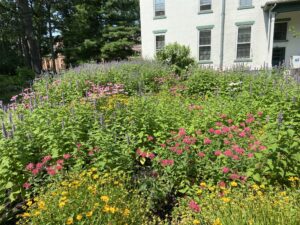 After No Mow May, consider building a wildlife garden where you live. Share your yard with other creatures like bumblebees, fireflies, butterflies and birds. Start small; reduce the area you mow, plant some native perennials, leave the leaves under the drip line of your trees and slow down your mowing. No Mow May is a first step to rebuilding the natural world and we really hope you take it. You can purchase native, pollinator-friendly plants at the Pollinator Palooza Native Plant Sale on Saturday, May 31 from 10am-3pm at Oligny’s Country Gardens- 390 Wilton Gansevoort Rd.
After No Mow May, consider building a wildlife garden where you live. Share your yard with other creatures like bumblebees, fireflies, butterflies and birds. Start small; reduce the area you mow, plant some native perennials, leave the leaves under the drip line of your trees and slow down your mowing. No Mow May is a first step to rebuilding the natural world and we really hope you take it. You can purchase native, pollinator-friendly plants at the Pollinator Palooza Native Plant Sale on Saturday, May 31 from 10am-3pm at Oligny’s Country Gardens- 390 Wilton Gansevoort Rd.
Written by Dianna Goodwin, Pollinator and Native Plants Committee Chair

